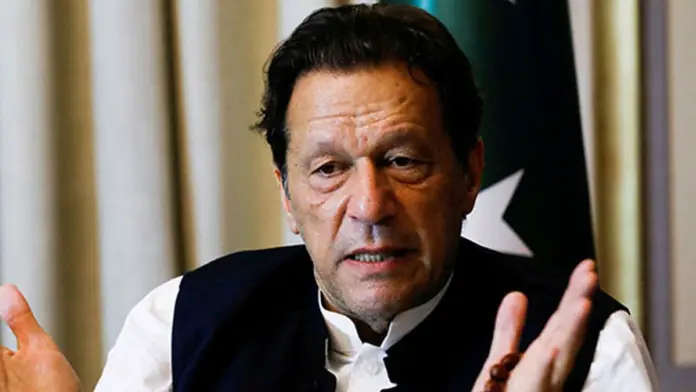The Pakistan Tehreek-e-Insaf’s (PTI) appeal to the International Monetary Fund (IMF) to investigate alleged election fraud in Pakistan carries significant implications for the country’s political and economic landscape. While the PTI presents its case as a quest for transparency and democratic integrity, a deeper analysis suggests ulterior motives at play, particularly with regards to PTI’s founding Chairman, Imran Khan.
By leveraging the IMF as a platform to address election fraud allegations, the PTI under Khan’s leadership appears to be pursuing a dual agenda. On the surface, the party seeks to uphold democratic principles and ensure the legitimacy of Pakistan’s electoral process. However, a closer examination reveals a more cynical interpretation: Khan may be exploiting international organizations to destabilize the country’s political landscape for personal gain.
Imran Khan’s history of political maneuvering and ambition raises concerns about his true intentions behind the PTI’s appeal to the IMF. By potentially blocking Pakistan’s access to IMF funds through allegations of electoral fraud, Khan risks plunging the country into a severe financial crisis, thereby undermining its stability and economic well-being. Such a move could be interpreted as a calculated effort to create chaos and capitalize on the ensuing turmoil to consolidate power.
Furthermore, Khan’s track record suggests a propensity for authoritarian tendencies, raising questions about his commitment to democratic principles. By weaponizing international scrutiny against his political opponents, Khan may be seeking to eliminate dissent and entrench his grip on power, regardless of the consequences for Pakistan’s democratic institutions and civil society.
The PTI’s call for an independent investigation into election fraud must be viewed within the broader context of Khan’s political agenda. While transparency and accountability are essential pillars of democracy, the PTI’s motives merit careful scrutiny. If Khan’s actions result in destabilizing Pakistan’s economy and democratic institutions, it would constitute a grave betrayal of the trust placed in him by the Pakistani people.
As the IMF deliberates its response to the PTI’s appeal, it must consider the broader implications of intervening in Pakistan’s political affairs. While ensuring electoral integrity is paramount, the IMF must not inadvertently enable Khan’s authoritarian ambitions or undermine Pakistan’s democratic progress. The international community, too, must remain vigilant against any attempts to manipulate democratic processes for personal gain, lest Pakistan’s stability and democratic future hang in the balance.







